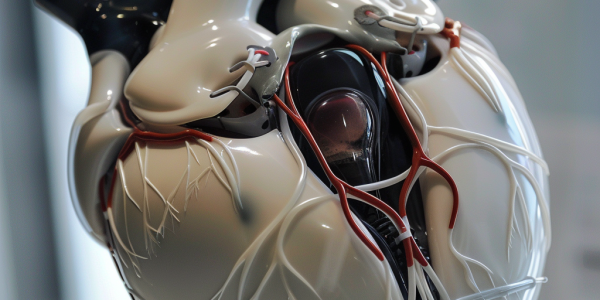Study Shows Living Near Greenery and Low Crime Rates May Reduce Dementia Risk Factors
A recent study led by Monash University suggests that living in areas with abundant greenery and low crime rates may reduce dementia risk factors. Proximity to greenspace and lower crime rates were associated with fewer modifiable dementia risk factors, particularly in individuals residing in areas with lower socioeconomic status. The study emphasizes the importance of key modifiable dementia risk factors such as high blood pressure, obesity, high cholesterol, and physical inactivity, with proximity to greenspace identified as a significant factor promoting physical activity and social interaction.
Study Reveals Higher Mortality Risk for Black Women with Antibiotic-Resistant Blood Infections
New research presented at the ESCIMD Global Congress in Barcelona revealed concerning findings regarding the outcomes of Black women hospitalized in the US with a blood infection resistant to last-resort antibiotics. The study, led by Dr. Felicia Ruffin from Duke University School of Medicine, highlighted that Black women facing bloodstream infections caused by carbapenem-resistant enterobacterales (CRE) were at a significantly higher risk of death compared to Black men or White women. The study emphasized the need for further research to uncover the social determinants influencing health outcomes in these cases and address disparities in healthcare.
Is Hormone Replacement Therapy for Menopause Good for Your Heart?
Learn about the potential link between Hormone Replacement Therapy (HRT) for menopause and heart health, including the best timing to start HRT for cardioprotective benefits. Discover the importance of estrogen in protecting the heart and blood vessels from disease, and how long HRT can be safely taken.
Study Reveals Superbug Risk in Hospital Sinks
Hospitals are grappling with the presence of drug-resistant bacteria, particularly in sinks, as highlighted by a recent study on superbugs. The study focused on a ‘multispecies outbreak’ of carbapenemase-producing Enterobacterales (CPE) in a paediatric ward, underscoring the challenges of combating these drug-resistant superbugs in healthcare settings.
Revolutionary Artificial Heart Unveiled in Medical Breakthrough
Discover the groundbreaking development of an innovative artificial heart that is set to revolutionize cardiac disease treatment. Biomedical engineer Daniel Timms, inspired by personal tragedy, has created a potential game-changer in the realm of cardiac care. As anticipation builds for the first human implant, the medical community eagerly awaits the transformative impact of Timms’ revolutionary invention.
The Benefits of Swimming for Physical and Mental Health
Discover the numerous benefits of swimming for physical and mental health. From muscle strengthening to improved heart health, swimming is a low-impact exercise that engages multiple systems within the body. With over 300 million annual visits in the U.S. alone, swimming is a popular leisure activity that offers advantages like cardiovascular and respiratory fitness, muscle strength, injury prevention, and better mental well-being. Suitable for all ages and fitness levels, swimming is a versatile and inclusive workout option.
New Mutant Strain of Monkeypox Raises Pandemic Concerns in Congo
A new mutant strain of monkeypox with ‘pandemic potential’ has been identified in Kamituga, Democratic Republic of Congo, raising concerns among health officials. Researchers emphasize the need for urgent measures to contain the virus and prevent a global outbreak, highlighting the risks posed by the mobile population in the densely populated gold mining town. Calls for vaccines, drugs, and enhanced surveillance measures are made to prevent another global mpox outbreak.
Bird Flu Spreads to Dairy Cows Across Eight States in the US
A recent outbreak of bird flu has spread to dairy cows in the United States, affecting over two dozen herds across eight states. The virus, identified as Type A H5N1, has been found in cattle for the first time, raising concerns about food safety and production. Despite the spread of the virus to farm animals, authorities assure consumers that there is no immediate threat to human health or the safety of dairy products. States affected by bird flu in dairy cows include Idaho, Kansas, Michigan, New Mexico, North Carolina, Ohio, Texas, and South Dakota. While the virus has not mutated to facilitate human-to-human transmission, restrictions on the import of dairy cattle from affected regions have been imposed in 17 states to prevent the spread of the virus within herds. Pasteurization effectively eliminates the bird flu virus from food products, ensuring the quality and safety of dairy products.
Compound from Blessed Thistle Shows Promise in Nerve Regeneration Research
Researchers from the University of Cologne have discovered a potential treatment for nerve regeneration using a compound found in blessed thistle. The study reveals the role of cnicin in accelerating nerve fiber growth, offering a promising solution for nerve injuries. With successful results in animal models and human cell studies, cnicin’s oral administration could revolutionize nerve injury treatment. Further clinical studies are needed to determine optimal dosage and validate its therapeutic potential in humans.
Woman Shares Decade-Long Journey with Endometriosis Misdiagnosis
Learn about Mik Zazon’s decade-long journey with endometriosis, a condition that affects 1 in 10 women. Despite debilitating symptoms like heavy periods and abdominal pain, Mik’s diagnosis was delayed for years. Her story highlights the importance of advocating for oneself and seeking proper medical attention for persistent health issues.










